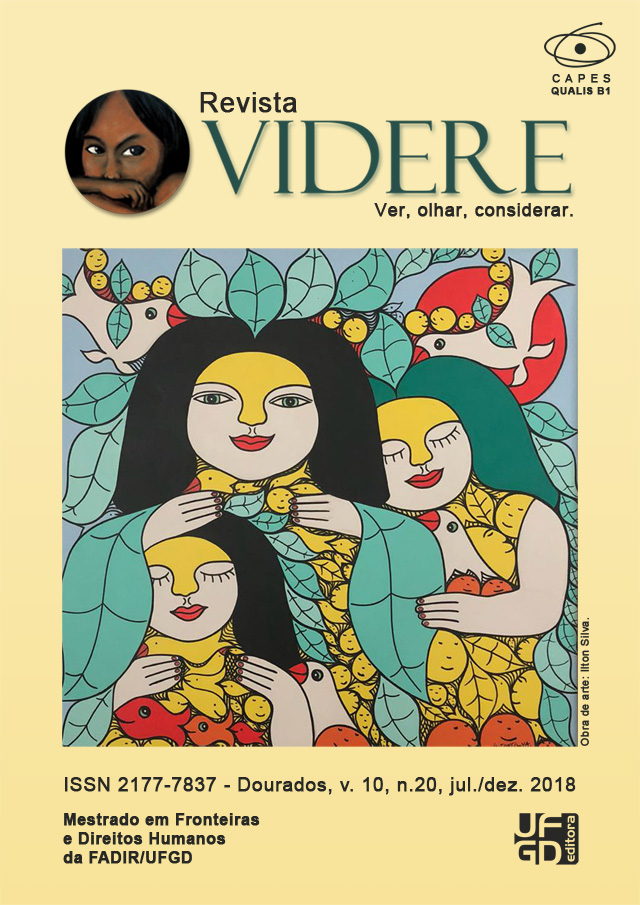Políticas de saúde coletiva e gestão urbana de resíduos sólidos na fronteira: um estudo de caso em Porto Murtinho - MS
DOI:
https://doi.org/10.30612/videre.v10i20.7609Abstract
O presente estudo tem por objetivo analisar a gestão dos resíduos sólidos e a sua contribuição para a saúde coletiva da população próxima ao lixão do Município de Porto Murtinho – MS. Para tanto partiu da seguinte problemática: a atual gestão dos resíduos sólidos urbanos do Município de Porto Murtinho – MS contribui com a saúde coletiva de sua população dos moradores próxima ao lixão? O estudo partiu de uma abordagem qualitativa, utilizando da pesquisa aplicada, do tipo exploratório – descritivo. Os dados foram coletados por meio de entrevistas semiestruturadas com moradores da região. Os moradores foram selecionados por meio da amostra não probabilística do tipo intencional, sendo escolhidos 10 (dez) moradores, ou seja, 7,69% da população alvo. Analisados os resultados, concluiu-se que os moradores residentes próximos ao lixão municipal não percebem uma boa gestão dos resíduos por parte do poder público, pois relatam a falta de infraestrutura adequada, condições insalubres e vulnerabilidade para contágios de doenças, tendo em vista a proximidade do lixão.Downloads
Downloads
Published
How to Cite
Issue
Section
License
Authors must accept the publication rules when submitting the journal, as well as agree to the following terms:
(a) The Editorial Board reserves the right to make changes to the Portuguese language in the originals to maintain the cultured standard of the language, while respecting the style of the authors.
(b) Authors retain the copyright and grant the journal the right to first publication, with the work simultaneously licensed under the Attribution-NonCommercial-ShareAlike 3.0 Brazil (CC BY-NC-SA 3.0 BR) that allows: Share - copy and redistribute the material in any medium or format and Adapt - remix, transform, and create from the material. CC BY-NC-SA 3.0 BR considers the following terms:
- Attribution - You must give the appropriate credit, provide a link to the license and indicate whether changes have been made. You must do so under any reasonable circumstances, but in no way that would suggest that the licensor supports you or your use.
- NonCommercial - You may not use the material for commercial purposes.
- Sharing - If you remix, transform, or create from material, you must distribute your contributions under the same license as the original.
- No additional restrictions - You may not apply legal terms or technological measures that legally restrict others from doing anything that the license permits.
(c) After publication, authors are allowed and encouraged to publish and distribute their work online - in institutional repositories, personal page, social network or other scientific dissemination sites, as long as the publication is not for commercial purposes.



















